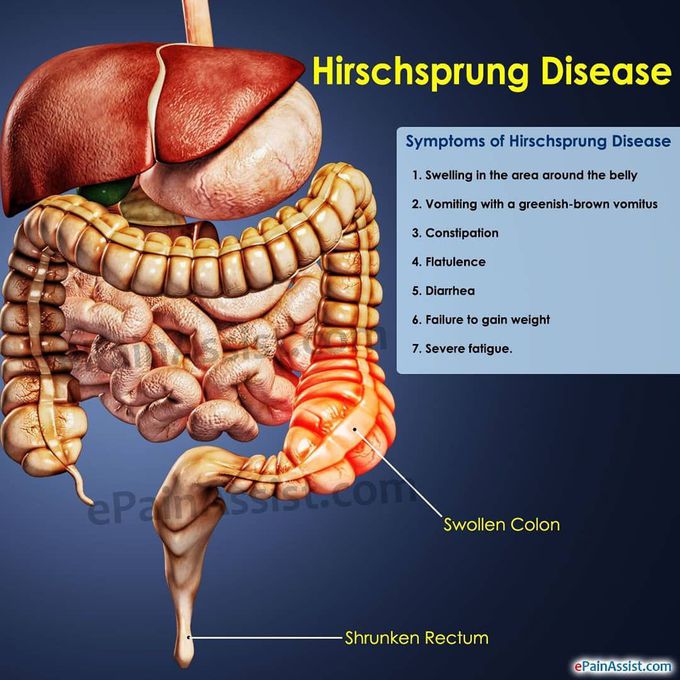


Hirspung disease
Hirschsprung disease is an intestinal disorder characterized by the absence of nerves in parts of the intestine. This condition occurs when the nerves in the intestine (enteric nerves) do not form properly during development before birth (embryonic development). This condition is usually identified in the first two months of life, although less severe cases may be diagnosed later in childhood. . Enteric nerves trigger the muscle contractions that move stool through the intestine. Without these nerves in parts of the intestine, the material cannot be pushed through, causing severe constipation or complete blockage of the intestine in people with Hirschsprung disease. Other signs and symptoms of this condition include vomiting, abdominal pain or swelling, diarrhea, poor feeding, malnutrition, and slow growth. People with this disorder are at risk of developing more serious conditions such as inflammation of the intestine (enterocolitis) or a hole in the wall of the intestine (intestinal perforation), which can cause serious infection and may be fatal.
Source: https://www.instagram.com/p/Bqqw1D5BRsc/?utm_source=ig_share_sheet&igshid=bumrb8n6pg0c
